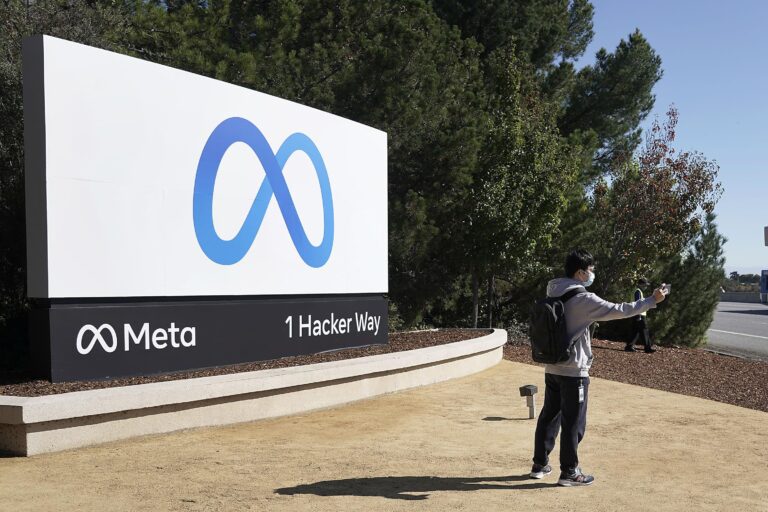I am not sure anyone knows what an AI laptop is.
- Such is the magic of AI that it can add over $100bn to the value of a company simply with the promise to add it to its computing products even if no one is very sure how it will be used in the short term.
- Apple has been the focus of intense speculation with regard to its lack of an AI strategy which combined with all of the other headwinds it has been facing has put pressure on both its reputation and its valuation.
- However, the latest leak (courtesy of Bloomberg) is that Apple is planning a revamp of its entire Mac line-up and intends to infuse AI into its upcoming M4 processor to turn its Macs into AI Macs.
- How much of this is marketing and how much is real changes being made to parts of its silicon design to optimise for the running of neural networks remains to be seen.
- Either way, I suspect that when the M4 launches, Apple will focus on this because it is what everyone wants to hear and because it will detract attention away from the fact that the M4 is likely to offer only incremental improvements over the M3.
- AI PCs and now AI Macs are all the rage but beyond enabling AI to run quickly and efficiently on laptop and desktop computers, no one really seems to know what the main uses will be.
- The biggest issue is that we are at an early stage of generative AI development which means that the best models are trillions of parameters in size meaning that they can only run in the cloud.
- Consequently, within the time frame of 12-24 months, it is extremely unlikely that these sorts of models (which are the ones that people want to use) will be running locally on computers.
- This raises the question of what all of the AI inference capacity implemented on laptop and desktop computer chips will be used for.
- There are long-term possibilities:
- First, enhancements: which would be using AI to make things that users do on computers already more effective and more efficient.
- A good example of this would be image and video editing where AI that can recreate missing pieces or frames that runs locally could speed up and improve the content creation business.
- Apple is pretty strong with creators who engage in this activity and so I would expect to push pretty hard on this and have the likes of Adobe and so on up on stage when it makes the announcement.
- Another example would be an excellent search and retrieval function of all of one’s Office documents which today remains execrable.
- Second, hybrid: where local models and models in the cloud work together to provide improved productivity and a better experience.
- An example of this could be a smaller model that runs locally on the device that is fine-tuned and optimised for the functions that are carried out on the device.
- This could be a chatbot that is trained on how the Office Apps work so that the help function could finally be useful but then when asked something about William Shakespeare, it goes to a large cloud model to get the answer.
- If AI and generative AI are going to become a big part of computing going forward, it makes most economic sense to implement as much as possible on the edge device rather than 100% in the cloud.
- This would also have the advantage of providing a more responsive service as well as better privacy and data security as data personal to the user will never leave the device.
- In the long term, as the technology matures, and its real capabilities are better known then these use cases are likely to come to fruition, but I think that the industry may struggle to sell the idea of an AI computer to users buying PCs in 2024.
- This is because the technology is very immature and all that most computer buyers understand about AI is ChatGPT.
- You don’t need an AI PC to access ChatGPT or any of the other services which may leave them somewhat non-plussed as to why they should pay extra for a computer that has AI in it.
- Instead, I suspect that consumers will be much more able to grasp the fact that Apple and Qualcomm-powered computers will perform at least as well as their Intel equivalents but have double the battery life.
- This is a much more difficult argument for Apple to make as it will be trying to entice the user to upgrade from M1 or M2 but for Qualcomm and Microsoft this is a no-brainer because their benchmark is Intel, not Arm-based Apple silicon.
- This is why I would much rather own Qualcomm over Apple if I wanted to gain exposure to a potential AI computing replacement cycle.
- I already own Qualcomm as the market offered me an opportunity to own it at less than 12x forward PER, but I am holding onto it due to the opportunity in PCs against Intel as well its drive into automotive which should start paying financial dividends in 2025.
- Apple’s underperformance this year has left it cheap compared to its direct large-cap technology peers but there are much better options outside of the mega-cap technology space.










Blog Comments
Anice Hassim
April 18, 2024 at 1:40 pm
* This is because the technology is very immature and all that most computer buyers understand about AI is ChatGPT.
* You don’t need an AI PC to access ChatGPT or any of the other services which may leave them somewhat non-plussed as to why they should pay extra for a computer that has AI in it.
* Instead, I suspect that consumers will be much more able to grasp the fact that Apple and Qualcomm-powered computers will perform at least as well as their Intel equivalents but have double the battery life.
* This is a much more difficult argument for Apple to make as it will be trying to entice the user to upgrade from M1 or M2 but for Qualcomm and Microsoft this is a no-brainer because their benchmark is Intel, not Arm-based Apple silicon.
* This is why I would much rather own Qualcomm over Apple if I wanted to gain exposure to a potential AI computing replacement cycle.
These are great points, but I look at Apple differently to the others in the AI play because of their ability to build privacy and trust (and therefore intimacy) into their device vs the rest. So key foundation pillar of an AI service is not the devices – you have the device already, the phone in your hand. The foundation pillar of the economically valuable market will be trust and Apple have the most trusted devices.
So they may be a fast mover in terms of revenue capture precisely because they already have a capable device in market for two or three years now (on Apple Silicon)